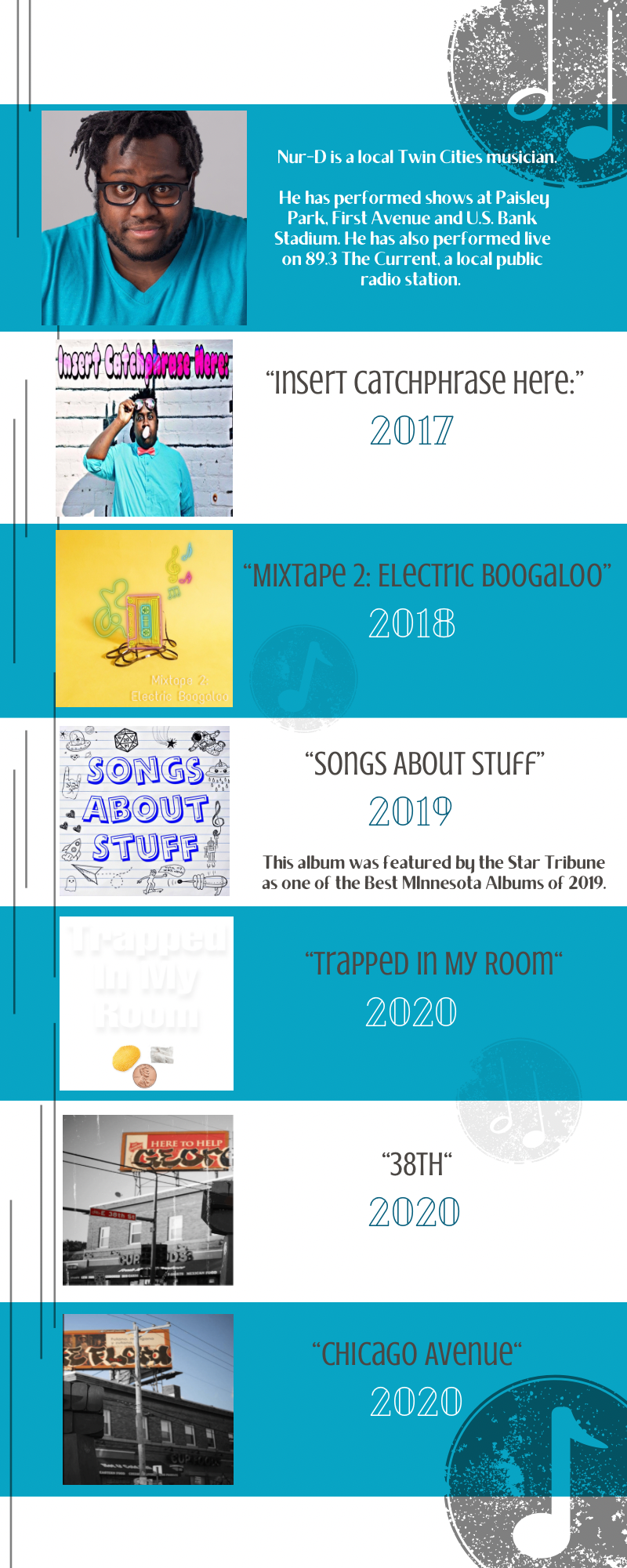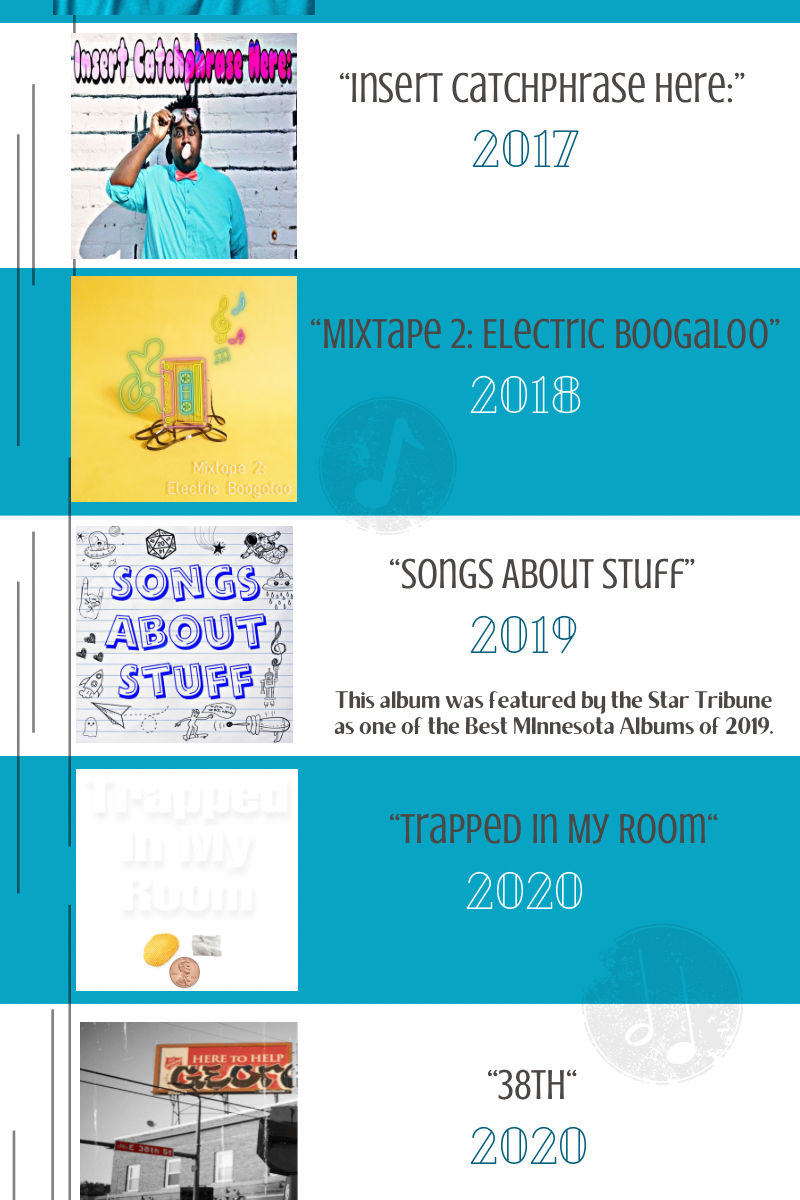
(Molly Heimel/TommieMedia)
Matt Allen, a hip-hop artist from Eagan, Minnesota known as Nur-D, blends pop culture and hip-hop production to create a hard-hitting commentary on current events, such as his experience with the COVID-19 pandemic and the killing of George Floyd last summer.
His most recent albums, “38th” and “Chicago Avenue,” were inspired by the protests last summer all across the world in response to George Floyd’s death. Allen used his experiences during the protests and his experiences as a Black man and turned them into music.
“As an artist, as a person that takes in life and reflects it back as a musician, it was impossible for me to not reflect on the things that I was seeing, the things I’ve already experienced in my life and am now experiencing in different ways, and so that time on the street influenced my music and that’s where ‘38th’ and ‘Chicago Avenue’ was birthed out of,” Allen said.
After seeing injustice firsthand, Allen and a few friends formed a group called Justice Frontline Aid that goes out and provides first aid and many other needed services to protesters and others who may have been injured during protests last summer.
“In those first couple weeks and the entirety of that time, even as we’re still going out and doing things, you got to see firsthand some of the horrors of police brutality, and injustice, and how systemic injustice really grinds down people,” Allen said.
St. Thomas adjunct music professor Brian Casey compares the music that has sprung up in response to the killing of George Floyd to the protest music of the 1960s and ’70s.
“I wish there was more of it. I mean, local artists are doing it like crazy. Local hip-hop artists are doing it, but I wish that the big hip-hoppers, the big hitters focused on it,” Casey said.
Casey said hip-hop, especially hip-hop produced by Black Americans that speaks to social issues in America, is demonized and weaponized against Black people.
“The religious right, and the white supremacists that exist in this country use that as a reason to hate Black people,” Casey said.
Allen said the protests that occurred over the summer and continue to occur on the streets of Minneapolis and around the world are a continuation of the protests that started in the 1960s.
“People have been still marching, people have been still talking, so the music that comes out of these movements is the same as every time you see a Vietnam movie and you hear Fortunate Son,” Allen said. “You hear that song, and the spirit of that, talking about how there is inequality in the system and the system is built for the elite, and specifically white at the top, the white male cisgendered human beings at the top.”
Allen said that he considers music that has emerged from the killing of George Floyd to be protest music in the same vein of songs like Fortunate Son by Creedence Clearwater Revival.
“It is a direct correlation to ‘Alright’ by Kendrick Lamar now, then songs like ‘Lockdown’ by Anderson .Paak, and even stuff like ‘Break Chains’ that I even wrote,” Allen said. “It’s all the same spirit of people being like, this is wrong, we need to change.”
When choosing a stage name, Allen drew upon these ideals and inspiration from a different side of pop culture: the dark-skinned, Christian comic book character Nightcrawler, who was often demonized for his appearance.
“As a Black kid reading comics… it was something that really spoke to me as a kid who felt a lot of those things a lot of the time,” Allen said.
Owen Larson can be reached at lars6521@stthomas.edu.



